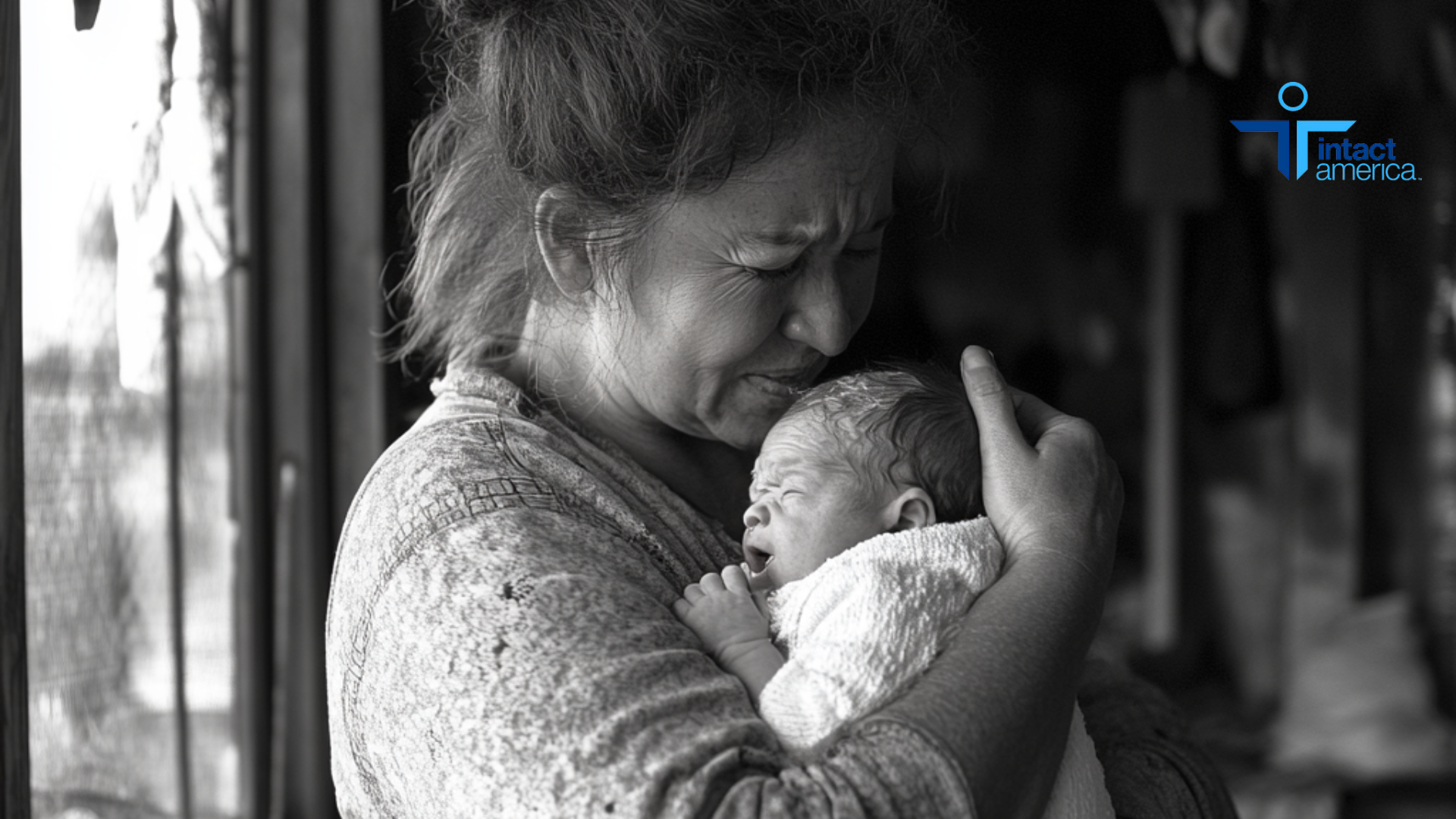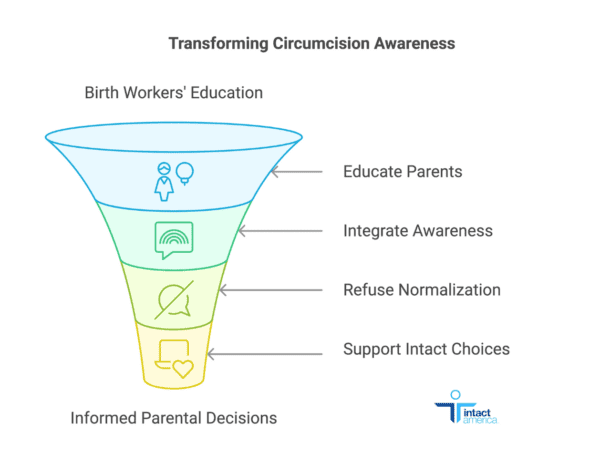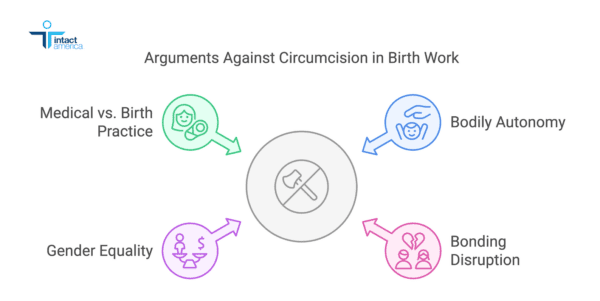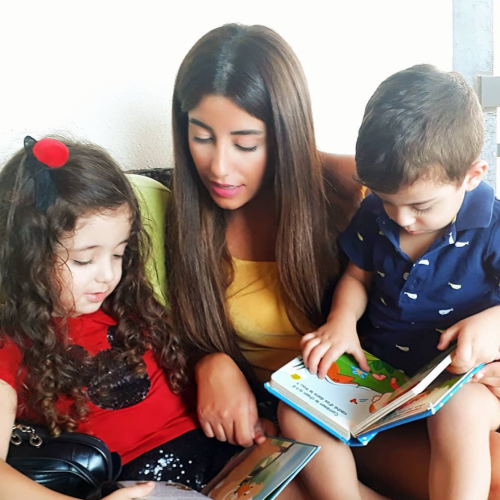
The role of doulas and midwives has always been clear: advocate for the mother, protect the newborn, and ensure birth remains a human experience, not a medical conveyor belt. They are warriors in the delivery room, standing between families and the impersonal, intervention-heavy approach of modern obstetrics. But when it comes to newborn circumcision, a practice that should have been abandoned alongside leeches and bloodletting, too many doulas and midwives stay silent—or worse, are complicit.
It’s time for that to change.
These birth professionals should be on the frontlines of the anti-circumcision movement, protecting newborns from an unnecessary, painful, and permanently altering procedure. Instead, in many hospitals, circumcision is treated like a routine step, another box to check before the baby is sent home. It’s normalized to the point where parents don’t even realize they have a choice. And who better than doulas and midwives—those who spend the most time educating and empowering parents—to challenge this status quo?
The Problem: Birth Workers and the Silence Around Circumcision
Midwives and doulas pride themselves on informed consent and bodily autonomy—so why does that principle stop at the foreskin? They advocate for gentle birth, minimal intervention, and honoring the natural process, yet many still hesitate to question circumcision, a procedure that flies in the face of everything they stand for.
The reality is that circumcision is an elective surgery on a non-consenting newborn. It removes a functional part of the body, inflicts extreme pain, and carries risks—including infection, botched procedures, and even death. Yet, hospitals push it like a routine vaccine, offering little real education to parents beyond outdated myths about hygiene and “matching dad.”
Doulas and midwives have a responsibility to step in. If they can advocate against unnecessary C-sections and push back on forced inductions, they can do the same for circumcision.
Why Circumcision Has No Place in Birth Work

Birth workers aim to protect newborns from harm—yet circumcision is the first major violation many babies experience. The same professionals who insist on delayed cord clamping and skin-to-skin bonding should not stand idly by while a baby is strapped down and mutilated.
Here’s why circumcision directly contradicts the principles of midwifery and doula work:
1. It’s a Violation of Bodily Autonomy
Midwives and doulas teach that babies own their bodies. They advocate for gentle transitions, avoiding unnecessary poking, prodding, and painful interventions. So why does this principle get thrown out the window when it comes to a baby boy’s genitals?
If a newborn is too young to consent to ear piercings, they are certainly too young to consent to permanent genital surgery.
2. It Sabotages the Bonding Process
Doulas and midwives stress the importance of uninterrupted bonding between mother and baby after birth. Circumcision shatters that by causing severe pain, trauma, and stress responses that interfere with early attachment.
Babies are hypersensitive in the hours and days after birth. The pain of circumcision skyrockets their cortisol levels, making them withdrawn, difficult to soothe, and sometimes refusing to breastfeed. Some go into a state of shock, falling into eerie silence—not because they are fine, but because their nervous system is shutting down from trauma.
No midwife or doula who values bonding should ever allow this to happen on their watch.
3. Circumcision is a Deeply Sexist Practice
Women’s bodily autonomy has been fought for in the birth space for decades. Midwives push back against unwanted episiotomies, forced inductions, and unnecessary interventions—yet they allow routine circumcision of baby boys to persist?
Male infants deserve the same right to bodily integrity as their mothers. If slicing off healthy genital tissue from a newborn girl is unthinkable, why is it acceptable for boys?
4. It’s a Medical Procedure, Not a Birth Practice
Circumcision is not a birth process. It is not part of welcoming a baby into the world, no matter how hospitals frame it. Birth workers fight to keep labor natural and intervention-free, yet this surgery is offered as casually as a swaddle blanket.
Doulas and midwives should be asking:
- Why are we taking a healthy baby and subjecting them to an unnecessary surgery?
- Why are we allowing hospitals to frame circumcision as part of newborn care when it is purely elective?
- If this were any other non-consensual surgery on a newborn, would we still be quiet?
What Birth Workers Can Do to Change the Narrative

If doulas and midwives refuse to speak out, the medical system will continue to push circumcision unchecked. Here’s how they can start fighting back:
1. Educate Parents—Fully and Honestly
Hospitals rarely give parents the full picture. They downplay the pain, ignore the risks, and fail to mention the normal functions of the foreskin.
Birth workers must fill that gap by educating parents on:
- The real purpose of the foreskin (it’s not just extra skin—it protects, lubricates, and enhances sensation).
- The risks (hemorrhaging, infection, painful adhesions, and in rare cases, death).
- The pain and trauma involved (babies scream until they go silent, not because they’re fine, but because they’re in shock).
- The fact that no medical organization in the world recommends routine infant circumcision.
2. Make Circumcision Awareness Part of Prenatal Conversations
Doulas and midwives already cover birth plans, feeding choices, and newborn care—circumcision should be part of that conversation.
Parents often don’t even realize they have a choice. Simply bringing it up and offering real information can change minds.
3. Refuse to Normalize It
No doula or midwife should be complicit in a practice that violates a newborn’s bodily integrity. If hospitals try to frame circumcision as standard newborn care, birth workers should push back hard.
Make it clear:
- Circumcision is not a medical necessity.
- It is a cosmetic, elective surgery.
- It should never be default hospital policy.
4. Support Parents Who Choose to Keep Their Babies Intact
Many parents feel pressure from family, doctors, and cultural norms to circumcise. Doulas and midwives should be a source of strength for those who choose to protect their baby’s body.
Provide them with resources, reassure them they’re making the right choice, and normalize intact boys. The more birth workers who make it clear that foreskin is normal, the less parents will feel pressured to remove it.
Final Thoughts: A Call to Action for Birth Workers
Doulas and midwives have the power to stop circumcision from being a mindless default. They are already fierce advocates for natural birth, informed consent, and bodily autonomy—it’s time they extend that advocacy to newborn boys.
If you believe in gentle birth, informed choice, and protecting babies from needless trauma, then you cannot stay silent on circumcision.
Start the conversation. Educate parents. Push back against the medicalization of a purely cosmetic procedure.
Newborn boys deserve the same respect for their bodies as everyone else. And it starts with birth workers refusing to be complicit.






No Comments